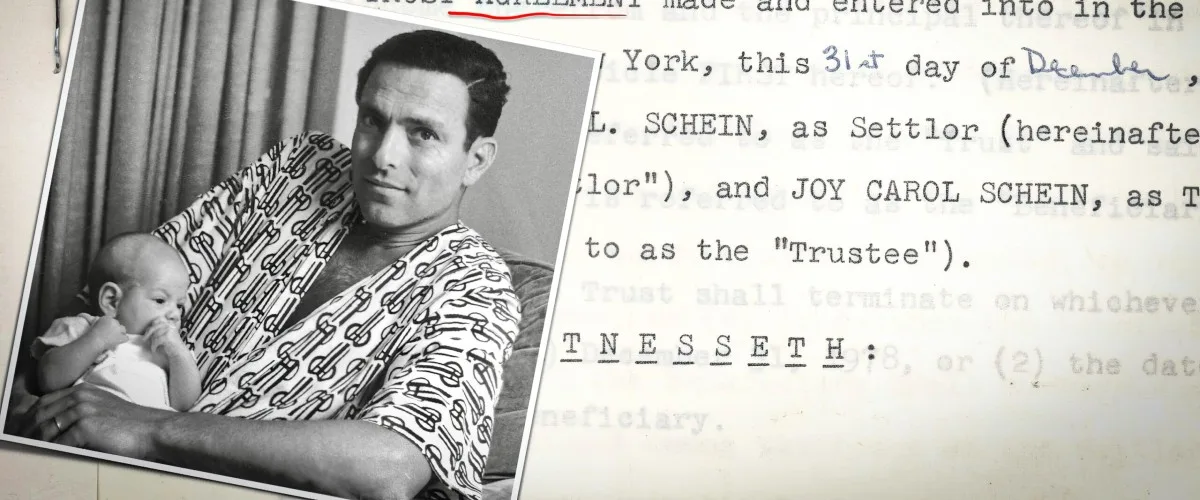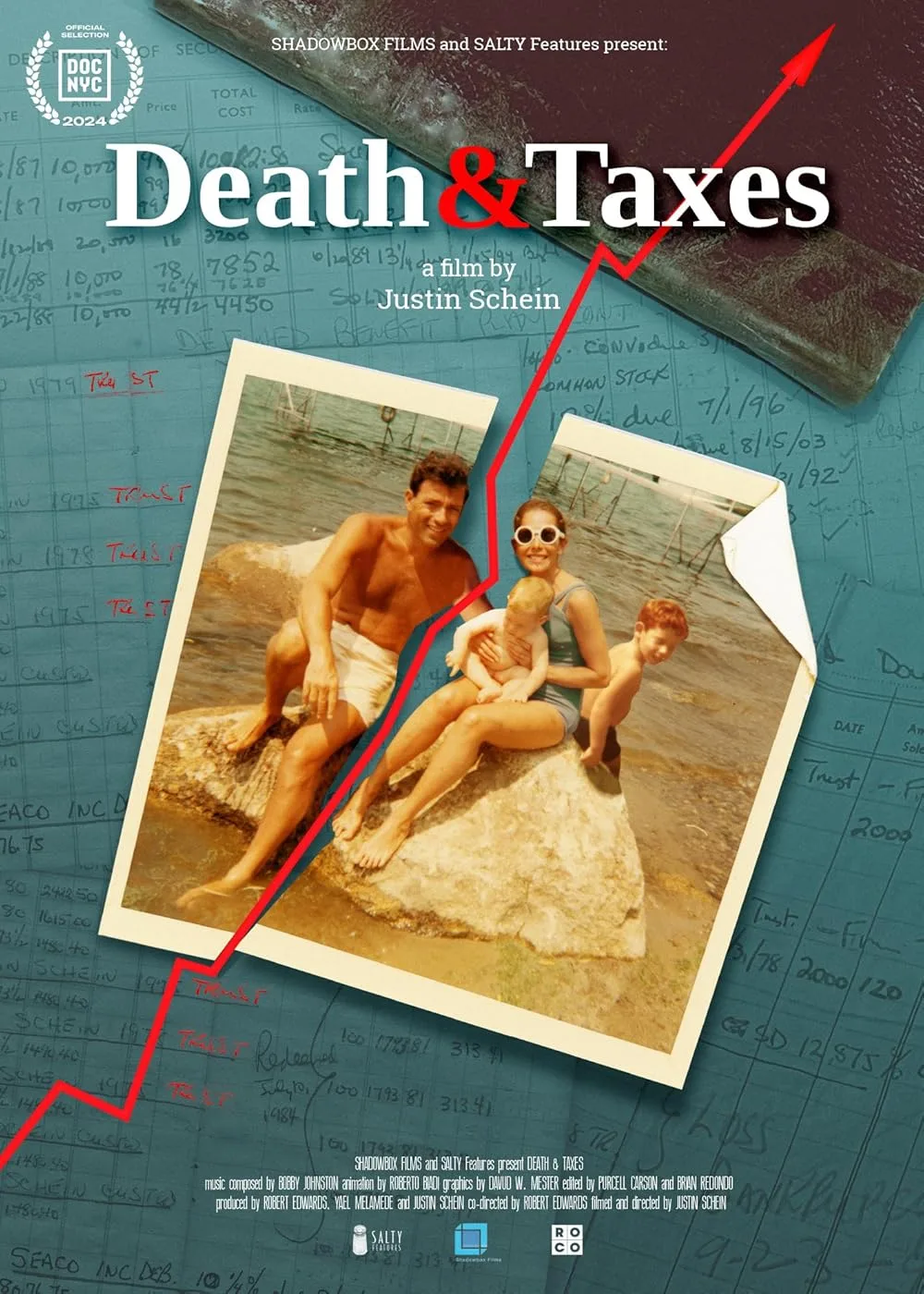This movie, co-directed by documentarian Justin Schein, who’s previously contributed to works about 9/11 and childhood depression, among other subjects, faces a daunting protagonist in this new film: his own father. Schein makes no bones about being a scion of wealth. He begins his film with shots of a gorgeous lake, abundant trees with turning colors, and a large domicile. A title tells us this is “The Country House, Connecticut, 2003.”
We are then treated to Harvey Schein waxing indignant, and Justin explaining in voiceover: “That’s my dad, holding forth on his favorite subject, keeping his hard-earned money from the taxman when he dies.” Harvey had a real problem with the estate tax, ingeniously renamed the “death tax” in conservative popular culture. He didn’t want his kids to have to pay for him trying to leave them a pile of money. In a moment of relative repose, Harvey muses, “It’s not a bad problem to have as long as you don’t let it drive you crazy.”
It’s not a problem that’s likely to drive me crazy, nor you. While this rule fluctuates, as of the time of this movie’s release, Justin tells us that anything below $27 million is exempt from the estate tax. That was the first time I wrote in my notes, “Why am I watching this movie?” and I would write it one more time. The movie frequently evoked harsh feelings in me, who’s never been good with money, while occasionally lamenting that he doesn’t have more money to be bad with.
Schein toggles between his personal story, which involves his own arguably bleeding-heart disagreements with his dad, and American history; a montage shows Presidents from Kennedy to Obama discussing varying tax strategies. And Schein kicks in with pat but accurate observations like “Inequality in America has grown dramatically.”
The filmmaker assembled a number of impressive talking heads to address both sides of the issue (although those arguing along the bleeding-heart lines are slightly favored). Robert Reich waxes eloquent on policy. While record mogul Clive Davis recalls Harvey Schein, the fierce and competitive record executive, less remembered for his love of music than for his eye on the bottom line. Eventually, Harvey rose in the company to the point where Akio Morita brought him to Japan for a brief period. Schein was a major champion of the Betamax home video format. And HE WAS RIGHT. Back in the day, I made wonderful friends with both Sony and JVC people as a consumer electronics journalist; everyone knew that Beta had it over VHS in almost every way. But I digress.
Another pat but true thing Schein mentions is that taxes pay for things we all need; “Potholes need to be filled.” (But ARE they filled, is the question we ask in municipalities all across the nation.) A concrete example of why I’m glad to pay my own taxes is the nearby public pool I’d prefer to be visiting this very minute. However, Schein’s dad doesn’t understand why the estate tax is so crucial, and attempts to engage him on the topic constructively, the filmmaker says, tend to “turn him into a fire-breathing monster.” Schein illustrates this statement with a clip of Godzilla. The movie is pretty literal-minded like that.
Now, while Schein pere accumulates great wealth, he remains frugal. “Never take a cab when you can take public transportation, never take public transportation when you can walk.” I kind of live by that ideal as well; I have to get me daily steps in anyway. But filmmaker Schein calls his dad out on hypocrisy for taking advantage of the G.I. Bill, which the filmmaker is quick to point out, excluded Black veterans. It’s as if his dad’s actual committed sins aren’t enough; he’s gonna be called to account for larger social injustice as well. The guy can’t win. Except for the part where he’s rich, I guess,
However, his immediate circumstances don’t alleviate his obsession with the estate tax. Not even the catastrophe of 9/11 gets his mind off the topic. His one-track mind runs the risk of turning him into a rather tedious figure. (When Fox News makes its debut, Schein depicts his father as its ideal viewer. No kidding.) As his marriage falls apart, he does gain some self-awareness, even as, at certain points, you wish his son might turn off the camera and do something else for his parents. This is the point where I thought the movie could be retitled “Scenes from Schrodinger’s Cat’s Marriage.”
As for self-awareness, he shares an anecdote about his grandmother discussing how she had kept all her money socked away for her children, and eventually felt a bit “ridiculous.” Harvey observes, “And now I find myself being ridiculous.” The movie is, indeed, the tragedy of a ridiculous man. On the other hand, he does manage a maneuver by which his heirs avoid the estate tax. How ridiculous is that?




















